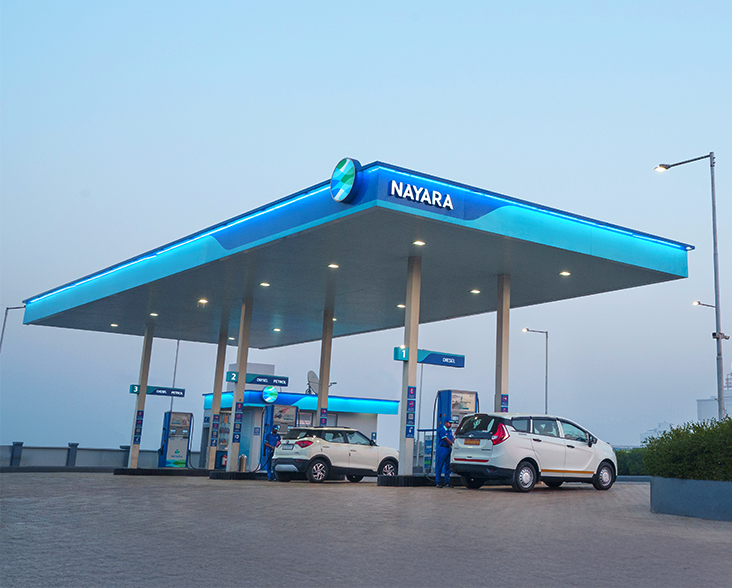What is the Difference Between a Petrol and a Diesel Engine?
When choosing a vehicle, one of the most common decisions is understanding the difference between petrol and diesel engine. Whether you’re looking for better mileage, smoother performance, or lower running costs, the choice between a petrol vs diesel car can significantly impact your experience. This article offers a clear and simple explanation of the diesel and petrol engine difference, helping you make the right decision for your driving needs.
Understanding the Key Differences Between Petrol and Diesel Engines
To understand the difference between petrol and diesel engine, it’s important to explore how each type of engine functions. Both rely on internal combustion to convert fuel into energy, but they differ in how this combustion takes place. When comparing a petrol vs diesel car, you'll notice differences in performance, fuel economy, and maintenance. Whether it’s a long-haul drive or everyday city commute, understanding how a petrol and diesel engine operates will give you clarity on which engine suits your driving style best.
Petrol Engine: How It Works
A petrol engine works on the Otto cycle, which uses spark ignition. In this type of engine, petrol is mixed with air before entering the combustion chamber. Once compressed by the pistons, a spark plug ignites the mixture, resulting in combustion. This process generates energy that powers the vehicle. One of the major petrol engine advantages is its ability to run smoothly with minimal vibration. Petrol engine vehicles are also quieter, lighter, and typically better suited for city driving. Due to their compact size, they often accelerate quicker and are favoured for short-distance or daily travel.
Diesel Engine: How It Works
A diesel engine functions on the Diesel cycle and uses compression ignition rather than spark ignition. Unlike petrol engines, diesel engines compress air alone in the chamber, significantly raising its temperature. Once the air is hot enough, fuel is injected, igniting upon contact with the compressed air. This system allows for more efficient energy conversion. Among the key diesel engine benefits is fuel economy - diesel engines typically offer higher mileage and torque, making them ideal for long-distance driving and heavy-duty tasks. Another advantage of a diesel engine is its durability; diesel engines generally have a longer lifespan. However, disadvantages of a diesel engine include higher noise levels, greater engine weight, and more expensive maintenance due to complex components.
Comparison Between Diesel and Petrol Engine
Understanding the difference between petrol and diesel engine isn’t just about what goes into the tank; it’s about how these engines operate, their efficiency, environmental impact, and which type better suits specific driving needs. Here’s a detailed look at how they differ across various parameters.
Working Cycle
The most fundamental difference between petrol and diesel engine lies in the type of thermodynamic cycle each uses. Petrol engines operate on the Otto Cycle, which relies on spark ignition to ignite the fuel-air mixture. On the other hand, diesel engines function on the Diesel Cycle, using high compression to generate heat for fuel ignition. This core mechanical difference sets the tone for how each engine performs under different conditions.
Combustion Process
In a petrol engine, air and fuel are mixed together before being compressed and ignited using a spark plug. This method results in a smoother combustion process and generally quieter engine performance. Conversely, in diesel engines, only air is compressed first; the fuel is injected later into the high-pressure, high-temperature chamber, causing spontaneous ignition. This leads to more power per unit of fuel but also results in more engine noise and vibration.
Fuel Metering Technology
The way fuel is delivered also differs between the two. Petrol engines commonly use carburettors or fuel injectors that pre-mix fuel and air. Diesel engines, however, use fuel injector pumps that atomise diesel directly into the combustion chamber after air compression. These distinct methods reflect the different needs of each engine type in terms of combustion timing and efficiency.
Compression Ratio
Another major comparison of diesel engine and petrol engine lies in the compression ratio. Diesel engines operate at higher compression ratios, typically ranging from 14:1 to 25:1. This makes them more thermally efficient, which contributes to better mileage. Petrol engines, on the other hand, have lower compression ratios, usually between 8:1 and 12:1 which results in less pressure and heat, and subsequently, lower thermal efficiency.
Fuel Consumption and Efficiency
When it comes to everyday cost, diesel engines have the upper hand. They generally consume less fuel compared to petrol engines, making them more economical over long distances or heavy-duty use. This is particularly important in commercial vehicles. However, petrol engines are more suitable for light vehicles and shorter commutes, despite slightly higher fuel consumption.
Noise and Vibration
Petrol engines tend to be quieter and produce fewer vibrations due to their smoother combustion process. Diesel engines, while more powerful, produce noticeable vibration and are noisier, especially at low speeds or during idle.
Environmental Impact
When comparing emissions, petrol engines release carbon monoxide (CO), which is toxic and dangerous in enclosed spaces. Diesel engines primarily emit carbon dioxide (CO₂), which is less immediately harmful to humans but has a higher global warming potential. Additionally, diesel exhaust contains particulate matter and NOx (nitrogen oxides), which require treatment systems like diesel particulate filters (DPFs) to minimise environmental harm.
Engine Weight and Size
Petrol engines are lighter, making them ideal for cars that prioritise speed and performance. Diesel engines, with their high compression demands, are built heavier and more robust to withstand the added stress. This added weight contributes to their durability but can slightly reduce vehicle speed and agility.
Maintenance and Longevity
While diesel engines are built to last and often have longer lifespans, they generally come with higher maintenance costs. Their components—especially injectors and turbochargers are more expensive and complex to repair or replace. Petrol engines, although they may not last as long under heavy loads, are cheaper and easier to maintain in day-to-day urban use.
Application and Usage
In general, petrol engines are more suited to light-duty vehicles like small cars, motorcycles, and scooters due to their smoother operation and quicker acceleration. Diesel engines, thanks to their torque-heavy output, are widely used in heavy-duty vehicles such as trucks, buses, tractors, and even marine vessels.
In summary, while both petrol and diesel engines serve the same basic purpose of powering your vehicle, the difference between petrol and diesel engine lies in how that power is generated and used. Each type of engine comes with its own advantages and trade-offs. Understanding the mechanics and benefits of both the petrol and diesel engine can help you make a more informed decision based on your needs, whether it’s performance, economy, or maintenance.
At Nayara Energy, we understand that every engine deserves the right fuel. That’s why we offer high-quality petrol and diesel across our retail network, tested to meet stringent standards that support smoother rides, better efficiency, and improved engine health, no matter what you drive.




